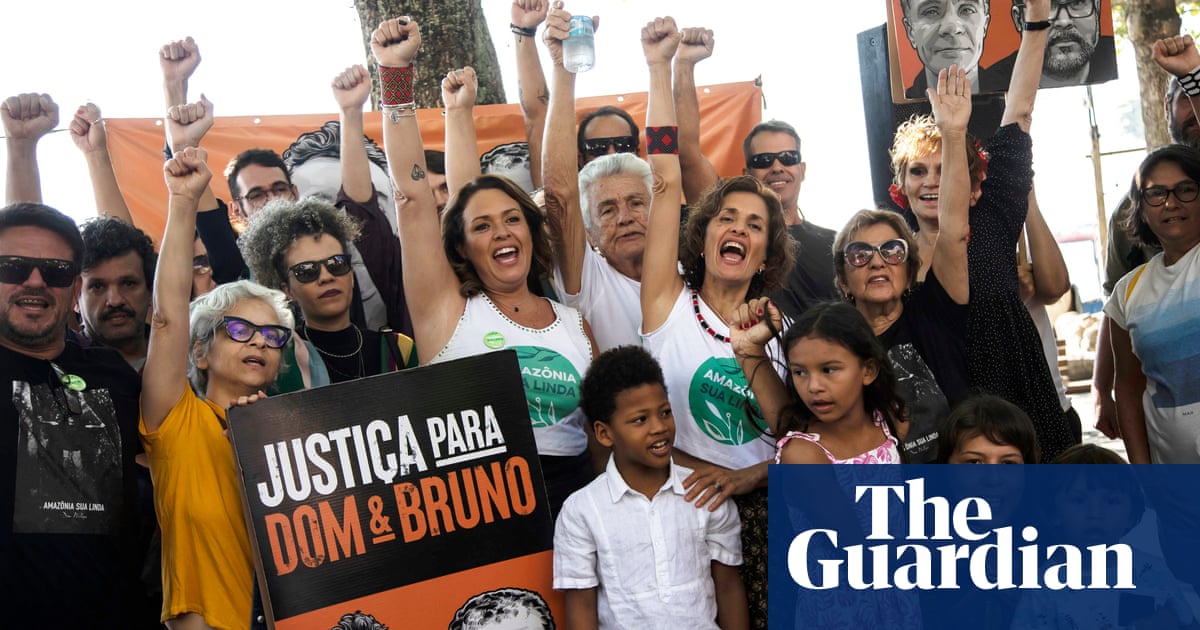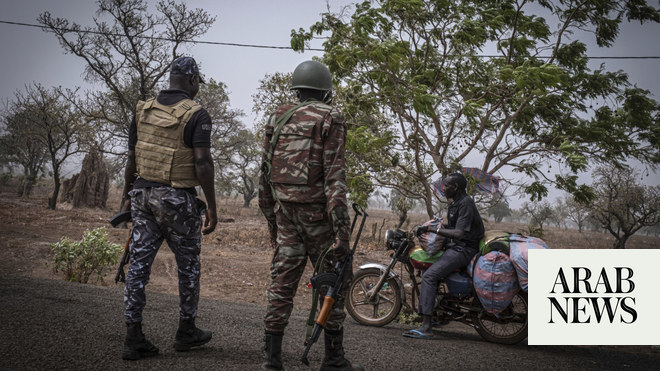
At the end of May, 30 people were murdered in the town of Mizdah, south of Tripoli, allegedly by traffickers. These were among the latest in a long series of deaths along the route from West Africa or the East and Horn of Africa to Libya. At least 68 refugees or migrants are known to have died along the route this year alone. As refugees and migrants travel along the Central Mediterranean route to Libya, many continue to be subjected to horrific violence at multiple points along the way, as the testimonies in this report show, even before any attempt to cross the sea to Europe. It remains one of the deadliest land crossings in the world.
This report draws on data collected by the Mixed Migration Centre’s 4Mi monitors along the route to map the places where refugees interviewed in 2018 and 2019 most frequently reported deaths, sexual and gender-based violence (SGBV), physical violence, and kidnappings occurred. It illustrates how refugees and migrants using the route face a series of risks including as they cross into eastern Sudan, and when crossing the Sahara Desert, and then again in multiple places in Libya. Similarly, those traveling through West Africa reported multiple incidents of physical violence, SGBV, as well as deaths at various points. Refugees and migrants have reported being subjected to brutal violence, including being burnt with hot oil, melted plastic, or heated metal objects, being electrocuted, tied in stress positions, and experiencing and witnessing repeated sexual violence, often in the context of ransom demands. UNHCR staff and partners continue to witness the severe impact these abuses have had on the mental health of many men, women, and children.
At present, there is still no way to accurately determine the number of deaths along the route each year. Many people continue to die in the Sahara Desert and their deaths are usually not officially recorded, while many others die of sickness and vehicle accidents, as well as violence while traveling through parts of West Africa. These deaths are rarely recorded aside from in survey data, such as that collected by 4Mi monitors. While 4Mi data does not record the date a death or incident of abuse occurred, a calculation of when each respondent started their travel indicates that almost 1,400 of the over 2,200 deaths reported by respondents likely occurred in 2018 and 2019. This, together with information from other sources, suggests that at a minimum, there was an average of at least 72 deaths each month. A high proportion of those reported to 4Mi monitors appeared directly related to crime, including negligence by smugglers as well as deaths in captivity. While many deaths and abuses during the crossing of the Sahara continue to be reported, other danger spots for refugees and migrants according to the data include Sabha, Kufra, and Qatrun in southern Libya, the smuggling hub of Bani Walid, southeast of Tripoli and several places along the West African section of the route, including Bamako and Agadez. While smugglers were reported to be responsible for most incidents of SGBV along the route, security forces, police or military personnel were reported to be primarily responsible for the incidents of physical violence, mostly in West Africa.
Despite the multitude of risks refugees and migrants face, people rescued or intercepted at sea continue to be disembarked in Libya, which UNHCR and others have repeatedly stated is not a port of safety. From there, most are transferred to detention centres, where many suffer dire conditions and some are at risk of again falling prey to smugglers and traffickers. In Libya, and elsewhere along the route, there are insufficient mechanisms in place at present to identify survivors of abuses and provide them with protection. Measures such as the identification of local safety networks, including safe houses and support services for survivors of SGBV and other abuses, need to urgently be put in place in key locations along the route. In addition, more support is needed to help refugees integrate in the countries to which they have fled and greater access is needed to safe and legal pathways, including resettlement and family reunification, to reduce the need for dangerous journeys.
Despite many positive steps forward that have increased accountability for perpetrators of abuses against refugees and migrants, there is still not enough collective action by States and relevant agencies to cooperate and coordinate across borders and regions. As a result, many criminals continue to target and abuse refugees and migrants with impunity. More needs to be done to support survivors seeking justice and to ensure they feel safe disclosing information; and for States to cooperate in their efforts to identify perpetrators at different points along the route, share key information with relevant law enforcement agencies, and collectively hold perpetrators accountable, including through the use of sanctions and further prosecutions.
RECOMMENDATIONS
To countries along the Central Mediterranean route and donors
1. Strengthen efforts to identify and provide protection to refugee and migrant survivors of abuses, such as trafficking, exploitation, sexual and gender-based violence, and kidnapping, including in the context of COVID-19. Such efforts should include identification and mapping of existing safety networks and measures as well as the establishment of more secure safe houses and spaces with the provision of basic assistance and SGBV response services in locations where a need is identified;
2. Increase access to legal aid and map its availability for victims along the route, including for victims seeking access to justice, as well as for those who may have grounds for refugee status on the basis of their experience or fear of trafficking as per UNHCR’s International Guidelines No 7, or on account of gender-related persecution or persecution based on sexual orientation and/or gender identity, as well as those at risk of statelessness;
3. Support national justice systems to provide protection to survivors of trafficking and other abuses such as SGBV, including through witness or victim protection programmes, and by providing training for relevant authorities on safe interview techniques for people with potential mental health conditions stemming from abuses;
4. Continue to strengthen efforts by law enforcement actors, including national counter-trafficking agencies, as well as protection and community actors to coordinate and cooperate across borders as a means of tackling international networks or actors responsible for trafficking, kidnap for ransom and other abuses;
5. Together with the African Commission on Human and People’s Rights, support the work of national human rights institutions to investigate allegations of abuses by State officials, including against refugees and migrants on the move, and hold perpetrators accountable, together with other relevant State institutions;
6. Urge regional economic communities particularly the Community of West African States (ECOWAS) in West Africa and the Inter-Governmental Authority on Development (IGAD) in East and Horn of Africa to work with countries of origin to address root causes, facilitate solutions and promote capacity of Member States;
7. Work to enhance the capacity of all relevant State authorities engaging in any capacity with refugees and migrants and increase the awareness of officials regarding the rights of refugees and migrants;
8. Further enhance efforts to provide protection in the region (with support from the African Union, humanitarian partners, and donors), including through meaningful access to employment opportunities and education, with due consideration to the specific needs and diverse profiles of people with different ages, genders, and characteristics, as a means of providing viable alternatives to dangerous journeys;
9. In countries where refugees are required to remain in camps, allow greater flexibility in the issuing of movement permits from camps to avoid the need for people to travel with smugglers for temporary journeys such as to major cities;
10. In Libya, amend Law 19 of 2010, which foresees hard labour as a sentence in response to irregular entry and can have the effect of fostering the exploitation of refugees and migrants;
11. In Libya, put in place a national registration system for refugees and migrants, including at disembarkation points, in detention centres, and in urban areas to avoid people going missing; and
12. Strengthen coordinated efforts aimed at search and rescue in desert regions.
To countries of destination
1. Enhance opportunities for safe and legal travel beyond the region covered in this report, including through removing obstacles to family reunification, increasing resettlement commitments, and introducing more complementary pathways including temporary labour schemes and education visas;
2. Provide refugees and migrants who have reached countries of destination, including through resettlement, with clear, voluntary, and confidential opportunities for access to justice, including by providing trusted and accessible channels for those wishing to provide information on abuses experienced along the route, counselling them on the implications of their possible participation in criminal proceedings, providing access to a status commensurate with their international protection needs where applicable, or, for those not in need of international protection, legal stay for the duration of criminal proceedings, and providing support with access to legal aid;
3. Continue to strengthen efforts by law enforcement actors to share key information on perpetrators of abuses with those able to take action, including with law enforcement agencies outside of Europe, ensuring that all cooperation is undertaken in a manner consistent with international human rights and refugee law;
4. Further enhance measures to identify victims of trafficking and other abuses, including through capacity building of immigration/asylum officials, law enforcement officials, and through establishing or strengthening coordination between those actors, NGOs, and other key stakeholders. Provide safe shelter for victims when needed, make information accessible on how victims of trafficking can seek help, and provide assistance for SGBV survivors to support their full recovery;
To humanitarian agencies
1. Enhance efforts to identify, in a collaborative manner, survivors of abuses along the Central Mediterranean route, including through increased outreach at key transport or transit hubs, and strengthening collaboration among service providers and community organizations as well as working with local refugee and migrant communities to identify ways in which support for survivors can be increased, barriers to accessing help can be addressed, and to increase referrals to assistance, including SGBV response services;
2. Work with national authorities to improve safe disclosure and reporting of incidents by survivors of abuses who are seeking access to justice, monitoring the response, and evaluating what further steps may be needed to strengthen protection;
3. Work with national counterparts to help ensure nondiscrimination in support for survivors, including for male survivors of SGBV, as well as others, including lesbian, gay, bisexual, transgender and intersex people;
4. Continue to strengthen two-way communication with communities from which people migrate towards Libya and other countries in North Africa to provide reliable information to challenge false expectations, warn of the multiple dangers along the journey, and see whether safer alternatives to dangerous journeys can be found where people are. Expand to other key transit countries and countries of first asylum awareness programmes among youth and children, such as Telling the Real Story;
5. Work collaboratively to establish an interagency mechanism accessible to family members to register those missing on the route, increase outreach to family members of people missing along the route, and strengthen family tracing and reunification through a coordinated approach across countries and regions;
6. Continue efforts to strengthen the collection of data on movements to and through North Africa, including protection incidents that occur along the route especially in places about which there is currently more limited information such as in northern Mali and southern Algeria.
To the international community
1. Subject any assistance provided to Libyan authorities to clear and effective measures to mitigate the risk of human rights violations. Libya is not a place of safety and no persons rescued at sea should be disembarked there unless doing so is the only means to respond to imminent risks to life at sea in a situation of distress or force majeure. Persons rescued at sea should always be disembarked in a place of safety, and in the case of asylum-seekers, a place where they can seek and receive international protection in line with international standards;
2. Support the work of the UN Panels of Experts on Libya, Mali, and Sudan and other experts to identify those engaged in consistent abuses of refugees and migrants in the region, and list, as appropriate, such perpetrators for sanctions purposes;
3. Enhance efforts on both sides of the Mediterranean Sea to investigate financial transactions involved with trafficking and kidnap for ransom, including crossborder payments, as a means to identify and disband networks;
4. Provide further support in the context of the Global Compact on Refugees for livelihoods and self-reliance so that refugees can better meet their needs in the countries to which they have fled rather than undertake risky journeys to and through Libya;
5. Increase the recording of deaths along the Central Mediterranean route by recording further details of each death reported during surveys, in official detention centres, reported to humanitarian actors in Libya, or following rescue at sea or in the desert, and work with the International Commission on Missing Persons and the International Committee of the Red Cross to increase the identification and notification of family members;
6. Urge the Libyan authorities to end detention and release the refugees and migrants who are arbitrarily detained in centres across Libya in an orderly manner and to cease detention of those disembarked in Libya after being rescued or intercepted at sea; and
7. Continue efforts through the Khartoum and Rabat Processes to strengthen cooperation that would help better protect refugees and migrants on the move, and increase accountability for perpetrators of abuses as described in this report.












